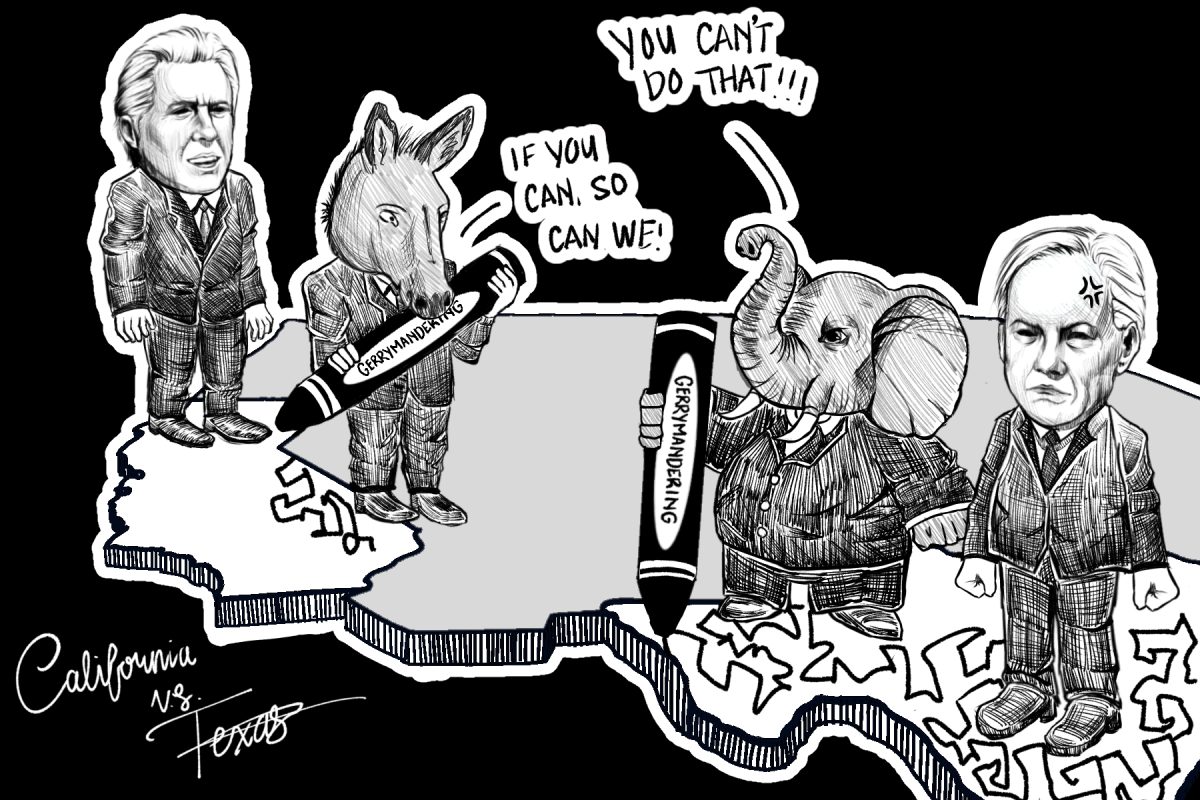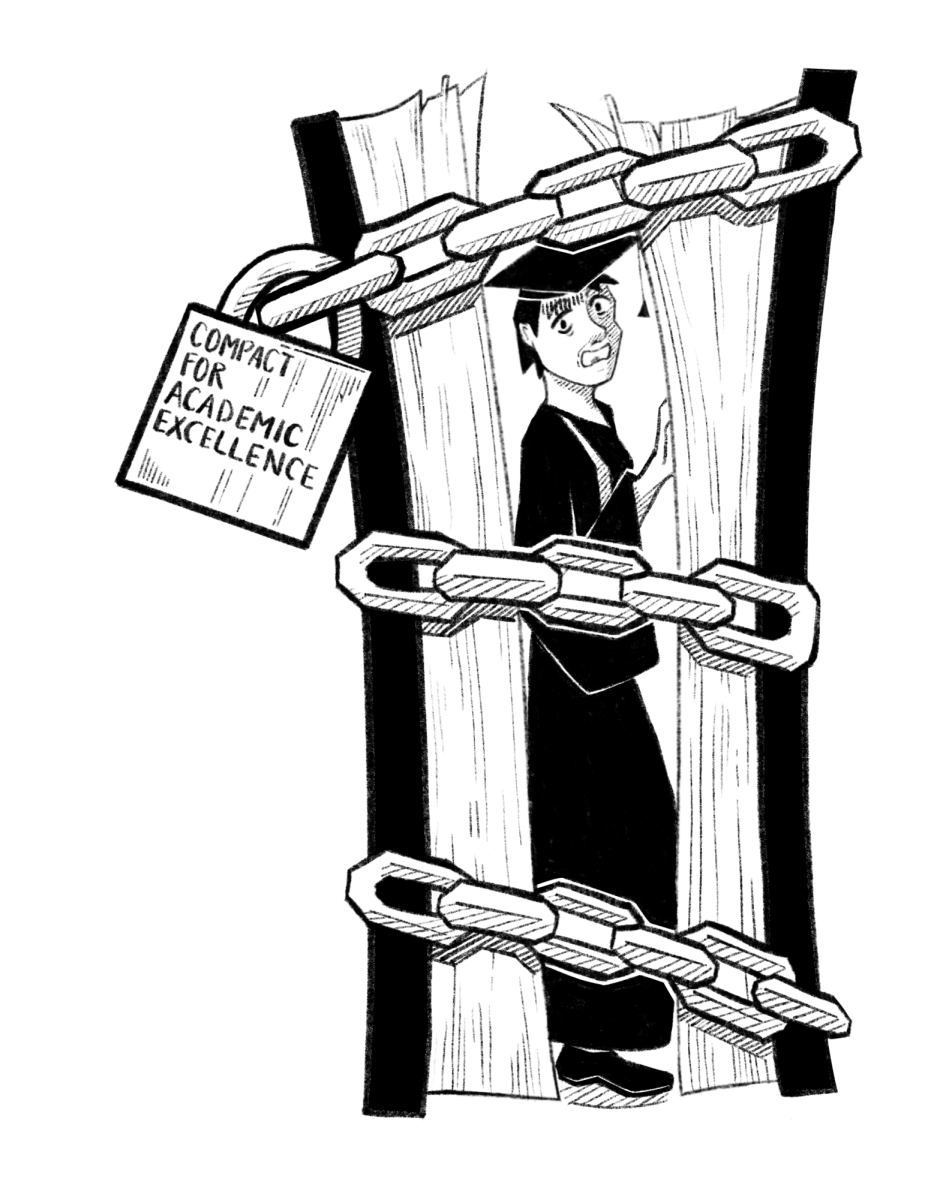On Nov. 4, California voters will vote on Gov. Gavin Newsom’s Proposition 50, a measure allowing the state to gerrymander: deliberately redrawing congressional district boundaries partisanly. Newsom is pushing back against conservative gerrymanders this year, abandoning the independent California Citizens Redistricting Commission and the state’s decade-long status as a model of fair redistricting. Proposition 50 counterbalances the U.S. House and moves beyond idly critiquing Republicans to prioritize progress towards liberal policies, paving a future for the Democratic Party.
Typically, legislators use census information to redraw district borders, selectively choosing their voters. Gerrymandering dilutes the opposing party’s influence by concentrating them into dense, but few districts or spreading them sparsely across several districts.
If passed, Proposition 50 will attempt to flip weak Republican seats and strengthen Democratic holds in swing districts, such as CA-45, containing Cypress, which Derek Tran flipped from Michelle Steel in 2024. Ahead of the 2026 midterm elections, Republicans hold a narrow trifecta — the House, Senate, and presidency — with a House majority of 219-213, and the presidential party historically almost always loses House seats in midterms.
The gerrymandering war began this July when President Donald Trump ordered Texas Governor Greg Abbott to redistrict his state. By August, Abbott approved the new map, asserting control with up to five additional Republican seats, never consulting constituents.
By contrast, Newsom’s response ditches the moral high ground of independent redistricting, directing voters to choose to fight fire with fire. The two largest and staunchly partisan states, California and Texas, hold massive weight in the House. Proposition 50 aims to even the playing field; if Newsom and the Democratic Party allowed Texas to gerrymander unchecked, they would willingly and unfairly lose crucial ground in the House and respect as a party, failing to stand up for liberal ideals.
For voters, taking aggressive action against the Republican agenda is a main priority. According to a March CNN poll, 57% of Democrats and Democratic-aligned independent voters believed Democrats should focus on stopping the Republican agenda. Often fractured into divisions, the Democratic Party must unite to take action that both represents constituents’ wants and advances left-leaning policies.
While gerrymandering is unethical regardless of political party and heightens partisan divisions in a polarized environment, Newsom’s response is the most effective balance to Republican tactics. California’s gerrymandering is temporary, set to expire in 2030. Now more than ever, Democrats must unite on a bold stance against Republicans in a gerrymandering war they started.
Proposition 50 is an aggressive yet necessary step forward to advance policy and tackle the cycle of gerrymandering. The proposition is only one step to the party’s strategy and future, though; voters can’t leave these efforts in vain. Democrats must continue taking action to put constituents’ needs first, and voters must continue supporting policies that turn these goals into meaningful change instead of symbolic intentions.


































































